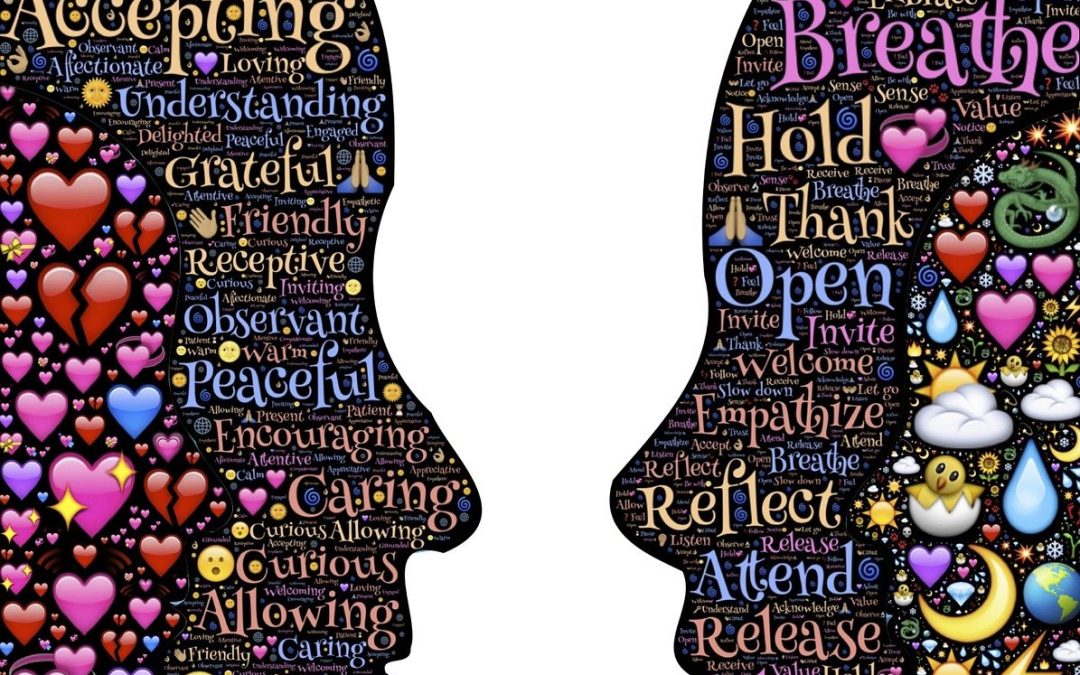“Listening isn’t waiting to talk, it’s the discipline of understanding.”
If leadership is about influence, then empathy is the secret frequency that makes people tune in. The problem is, many leaders think empathy is a soft skill, something that is nice-to-have, like plants in an office.
But empathy isn’t decoration. It’s navigation. It tells you where people really are, not just where you want them to be.
In two decades of working with global organisations, one pattern stands out again and again: The leaders who listen best lead best. Not because they’re the loudest or the smartest, but because they understand what’s really going on beneath the surface.
The Misunderstood Power of Empathy
Let’s start by clearing up a myth: empathy is not about being endlessly agreeable or emotionally indulgent.
Empathy is data. It’s insight into how people think, what motivates them, and why they behave the way they do.
It’s the difference between reacting to what’s said and responding to what’s meant.
And in a world where teams are stretched, remote, and often disconnected, empathy isn’t optional, it’s the foundation of leadership clarity.
“Facts inform. Feelings influence.”
Why So Many Leaders Get It Wrong
Somewhere along the way, corporate culture decided that empathy was the opposite of strength.
We rewarded decisiveness, efficiency, and certainty , all good traits, but forgot that without context, they can become blunt instruments.
I’ve seen brilliant leaders lose teams not because their strategy was wrong, but because they didn’t see the people delivering it. They were listening for results, not reality.
Here’s what that sounds like:
- “We’ve told them the new process three times. why isn’t it working?”
- “I’ve explained the strategy. Why don’t they get it?”
- “People are too emotional. They just need to adapt.”
Empathy would’ve caught the problem long before frustration did.
Because empathy isn’t about agreeing , it’s about understanding before acting.
Listening as a Leadership Discipline
Most leaders think they’re good listeners. Very few actually are.
Listening, done properly, is exhausting. It means you:
- Pause your instinct to fix.
- Tolerate silence long enough for people to reveal what they really mean.
- Ask questions you might not like the answers to.
It’s not passive, it’s active work.
And it’s worth it, because listening builds trust faster than any motivational speech ever will.
When people feel heard, they stop defending themselves and start contributing.
When they feel dismissed, they dig in or disengage.
“You can’t solve what you don’t understand. And you can’t understand if you’re only waiting to respond.”
The Business Case for Empathy
Empathy isn’t just good manners, it’s good strategy.
A 2023 Catalyst study found that employees who feel their leaders are empathetic are 2.5 times more likely to stay motivated and engaged.
In client-facing industries, the data is even clearer so empathetic listening correlates directly with higher customer retention.
But the real ROI of empathy isn’t just retention; it’s alignment.
Because when leaders listen, they uncover misalignments faster:
- The process that frustrates employees.
- The customer pain point that data didn’t show.
- The assumption buried in strategy that no one’s questioned.
Empathy shortens the distance between problem and truth.
The Empathy Equation
Empathy isn’t a personality trait. It’s a systematic skill.
Here’s the simple equation we use at Vani Malik Consulting to help leaders embed empathy into decision-making:
Empathy = Curiosity + Context + Courage.
Let’s break that down.
- Curiosity: Empathy begins with the willingness to ask. “How are you finding this change?” “What’s getting in your way?” “What would make this easier?”
Great leaders ask questions not to challenge, but to - Context: Facts live in spreadsheets; context lives in conversations.
If you don’t know what pressures, politics, or priorities shape someone’s actions, you’ll keep treating symptoms, not causes. - Courage: Empathy requires listening to uncomfortable truths, the feedback that stings, the frustration that exposes blind spots. But courage transforms that discomfort into improvement.
“Empathy without action is sympathy. Empathy with action is leadership.”
When Listening Changes the Outcome
A few years ago, I worked with a senior leader in a global firm struggling with declining team morale.
She was intelligent, capable, respected but increasingly frustrated. “I keep giving them clarity,” she said. “They just don’t seem motivated.”
When we observed her team meetings, the issue became obvious. She was delivering clarity, yes indeed, but not connection. Her communication was flawless, but one-way.
She asked, “Any questions?” But her tone suggested, “Please say no.”
Once she began inviting real dialogue, things like asking her team to explain how they understood the new direction, everything shifted. The clarity she’d been trying to deliver finally landed, because she’d made space for their perspectives.
Her leadership didn’t soften. It sharpened. Because empathy didn’t make her weaker, it made her aware.
Why Listening Is So Hard for Smart People
Paradoxically, the more experienced and capable you are, the harder listening becomes.
When you’ve “seen it all before,” your brain races ahead to the conclusion. You predict, pre-empt, and propose before the other person has finished their sentence.
It’s efficient, but it’s also quiet dismissive.
Smart leaders don’t mean to shut people down. They’re just moving too fast to notice when others stop speaking.
That’s why the best leaders practice something deeply counterintuitive: slow listening.
They wait. They paraphrase. They check understanding before judgment.
Because leadership isn’t a race to the best idea, it’s rather the art of making people feel like their ideas matter.
Empathy vs. Approval
Let’s address the elephant in the boardroom: empathy doesn’t mean you have to agree.
Some leaders fear that showing empathy will make them look indecisive or weak or that listening will slow things down.
But empathy and authority aren’t opposites; they’re allies.
Empathy lets you make better decisions, not easier ones. You can say “no” to someone and still make them feel respected.
“People will accept tough decisions if they feel seen in the process.”
That’s what separates clarity from coldness as one invites understanding, the other breeds resentment.
Building Empathy into Culture
You can’t outsource empathy to HR or training programmes. It has to live in leadership habits, not handbooks.
Here’s how organisations can make empathy practical, not poetic:
- Model it from the Top: Leaders who interrupt, rush, or dismiss feedback create a culture of silence. The tone of listening starts with the C-suite.
- Build It into Feedback Loops: Regularly ask your teams what they need to succeed amd not just how they’re performing.
- Reward Listening, Not Just Talking: Most companies reward the best presenters. The smartest ones reward the best listeners.
- Design Meetings for Dialogue: A 60-minute monologue with five minutes for Q&A isn’t communication. It’s a lecture. Flip it.
- Train Emotional Intelligence as a Business Skill: Empathy improves negotiation, collaboration, and innovation and these are all measurable outcomes. Treat it as performance, not personality.
A Little Cheeky Truth
Here’s something I’ve learned: The moment a leader says, “I’m a great listener,” there’s usually a queue of people waiting to disagree.
Because listening isn’t self-rated, it’s experienced (especially by others).
The leaders who truly listen don’t need to tell people they do. Their teams already know.
So next time you catch yourself saying, “I hear you,” pause and ask: “Do they actually feel heard?”
That’s the empathy equation in action.
Final Thought
Empathy isn’t weakness. It’s situational awareness. It’s how great leaders turn emotion into insight and insight into impact.
Because when you listen, I mean really listen, you don’t just understand people. You align them.
At Vani Malik Consulting, we help leaders build clarity through connection, turning conversations into catalysts for action. Because leadership without empathy is like navigation without a map: fast, confident, and completely lost.
“The smartest person in the room isn’t the one who talks the most. It’s the one who listens best.”



